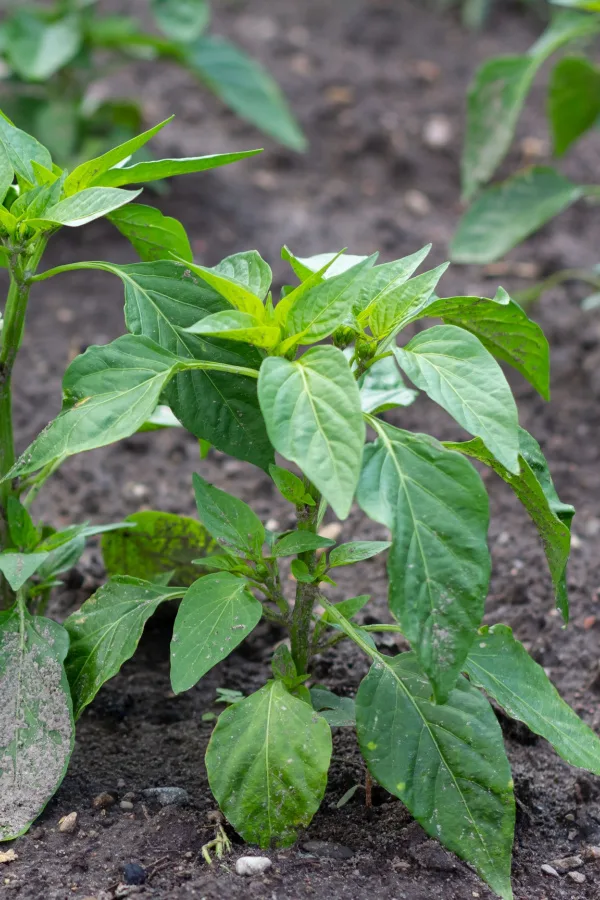Best Fertilizers for Peppers: Increase Development and Taste Naturally
Best Fertilizers for Peppers: Increase Development and Taste Naturally
Blog Article
Organic Vs. Synthetic Fertilizers: Which Is Best for Nurturing Healthy Pepper Plants?
In the world of nurturing healthy pepper plants, the choice in between natural and artificial fertilizers stands as an essential choice with far-ranging effects. While both alternatives objective to provide vital nutrients to sustain plant growth, the subtleties of their effect on the dirt, plant health and wellness, and the setting spark an argument that echoes throughout the horticulture area. Recognizing the distinctive benefits and potential risks of each fertilizer kind is crucial for pepper farmers seeking to enhance their yields while preserving an eco-conscious and lasting technique.
Advantages of Organic Fertilizers
Organic fertilizers offer a lasting and environmentally-friendly technique to beneficial pepper plants, offering essential nutrients without making use of synthetic chemicals. These all-natural fertilizers are derived from organic resources such as garden compost, manure, bone dish, and seaweed, promoting soil health and wellness and biodiversity. Unlike artificial fertilizers, natural options launch nutrients slowly, guaranteeing a stable and well balanced supply for pepper plants to prosper.
One significant benefit of natural fertilizers is their ability to boost dirt structure and water retention. By improving dirt wellness, natural plant foods advertise beneficial microbial task, which assists in nutrient uptake by pepper plants. Additionally, natural fertilizers decrease the threat of chemical run-off, shielding water resources from pollution and guarding the setting.
In addition, natural plant foods add to long-lasting soil fertility by promoting the growth of valuable soil organisms. These microorganisms assist break down raw material, launching nutrients in a form that is easily obtainable to pepper plants. best fertilizers for peppers. By cultivating a healthy and balanced dirt ecosystem, natural fertilizers sustain sustainable pepper cultivation practices that benefit both plants and the setting
Drawbacks of Synthetic Fertilizers
Artificial plant foods, in comparison to their natural equivalents, posture different drawbacks when utilized to nurture pepper plants, impacting both plant wellness and ecological sustainability. One significant disadvantage of synthetic plant foods is their tendency to leach nutrients from the dirt swiftly. This quick leaching can result in nutrition discrepancies in the dirt, triggering plants to struggle with shortages or poisonings. In addition, synthetic fertilizers can hurt helpful soil microorganisms, such as earthworms and advantageous microorganisms, interfering with the soil ecological community's equilibrium.
Furthermore, the overuse of artificial fertilizers can add to water air pollution. Excess plant foods not taken in by plants can remove into water bodies, causing eutrophication, where algae blooms diminish oxygen levels in the water, harming water life. Synthetic plant foods are typically obtained from non-renewable sources, such as fossil gas, adding to carbon emissions and ecological degradation during their manufacturing.
Nutrient Absorption Contrast
Efficient nutrient absorption plays an important role in the total wellness and growth of pepper plants. When contrasting organic and artificial fertilizers in regards to nutrient absorption, natural plant foods have the benefit of giving a much more balanced and slow-release source of nutrients (best fertilizers for peppers). Organic fertilizers have a selection of macro and micronutrients that are not only valuable for helpful site the plants however also advertise healthy dirt microbial task, which assists in nutrient uptake. On the other hand, artificial fertilizers usually provide a fast launch of nutrients, which can lead to seeping and runoff, causing reduced nutrient absorption rates by the plants.
Moreover, organic fertilizers improve dirt structure and water retention capability, permitting pepper plants to access nutrients much more efficiently. This enhanced soil high quality assists in root development, making it possible for better nutrient absorption. Synthetic fertilizers, although at first improving plant development due to their high nutrient concentrations, may impede lasting nutrient absorption by derogatory soil health in time.
Ecological Impact Considerations

On the various other hand, synthetic plant foods, although commonly more focused and immediately available to plants, can have detrimental results on the atmosphere if not used effectively (best fertilizers for peppers). Their manufacturing requires high energy inputs, resulting in greenhouse gas discharges and adding to environment modification. Moreover, the drainage of excess synthetic plant foods can contaminate water resources, leading to eutrophication and damaging marine environments.
Best Plant Food Practices for Peppers
To accomplish this, it is important to follow best fertilizer methods tailored to the details click for more info needs of pepper plants. One important technique is to perform a soil test before applying any fertilizers.
Another important technique is to fertilize pepper plants at the right time. Commonly, peppers gain from getting fertilizer at planting and afterwards once more when they start to flower. Over-fertilizing can lead to nutrient inequalities and harm the plants, so it is important to adhere to advised application prices.
Additionally, picking a well balanced fertilizer with an NPK ratio that fits pepper plants' requirements is fundamental. Inevitably, see this website combining organic and artificial plant foods sensibly can assist support healthy pepper plants while minimizing ecological effect.
Conclusion

Organic plant foods use a lasting and environmentally-friendly approach to beneficial pepper plants, offering essential nutrients without the use of synthetic chemicals. Unlike artificial plant foods, organic choices launch nutrients slowly, ensuring a steady and well balanced supply for pepper plants to grow.
Synthetic plant foods, in contrast to their organic equivalents, position various negative aspects when utilized to nurture pepper plants, influencing both plant health and wellness and ecological sustainability. When comparing natural and synthetic fertilizers in terms of nutrient absorption, natural plant foods have the advantage of giving a much more well balanced and slow-release source of nutrients.Moreover, natural fertilizers improve dirt framework and water retention capacity, allowing pepper plants to gain access to nutrients extra effectively.
Report this page